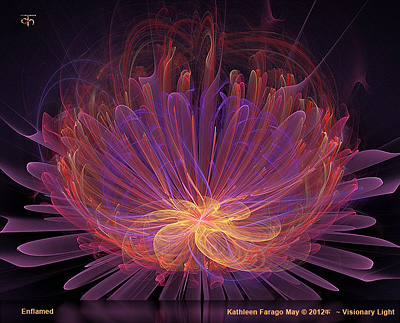| Finding
the Gift |
 Those of us who have been following the unfolding global
crisis - the
converging, interlocked "wicked problems" of energy, the environment,
economics and social justice - have become intimately familiar with the
painful progression through the Five Stages of Grief described by
Elizabeth Kübler-Ross. Those of us who have been following the unfolding global
crisis - the
converging, interlocked "wicked problems" of energy, the environment,
economics and social justice - have become intimately familiar with the
painful progression through the Five Stages of Grief described by
Elizabeth Kübler-Ross. 1. Denial — "This can't be happening! There's been some stupid mistake." 2. Anger — "This is simply not fair! Who is to blame for this?" 3. Bargaining — "I'll do anything for a chance at a few more years. Anything!" 4. Depression — "I can't do anything about it, so why bother with anything? What's the point?" 5. Acceptance — "Well, I can't fight it, so I may as well prepare for it." As I have worked within Stage 5 for the last few years, I've come to realize that Kübler-Ross stopped one stage too soon. There is an important stage even beyond the clear recognition and acceptance of What Is Really Happening. Often when we arrive at acceptance we are so relieved just to be free of the pain of our grief that we stop looking to see if any new possibilities may have been revealed. There is a fundamental principle in deep inner work that the greatest gifts are always found in the darkest places. The acceptance of an inevitable ending, whatever it is, can clear our vision and allow us to see previously unnoticed things that become the launch pad for new growth - for a kind of rebirth. The bigger the change, the greater its potential gift, if we can just look at it with new eyes. We may find ways of moving beyond our old habits, expectations and judgments. We may realize that our old ways of seeing the world held us back. We may give ourselves permission to live authentically, as our true selves. As a reminder to keep looking for those opportunities, I invite you to add a sixth stage to the Kübler-Ross model: 6. Finding the Gift — "Wow, look at the opportunities this change opens up! I may not be able to go back, or even forward in the direction I wanted, but just look at all the other possibilities that have suddenly appeared!" At first, I wanted to change things. I hoped to help put out the “fire on the roof of the world” or at least show people how that might be done. Later on, I wanted to wake people up to the fact that the roof was on fire in the hope that they would find a way to act. Both of those hopes have turned out to be forlorn. Now I have turned my attention and energies closer to home – to my immediate circle of community and my own inner preparations. My involvement with the global aspects of the crisis has largely shifted to watching it unfold, to making sure that any new developments are seen and understood by others, and generally acting as a shamanic witness to humanity’s transition. If we follow this shift in our attention and values, we will discover the opportunity to explore the sixth stage of grief, and we will begin to find the gifts that such great challenges always hold. These gifts include:
In closing, I would like to say that there is a very good reason that the concept of Surrender is at the core of all the world’s sacred philosophies. Unlike the Western interpretation of the word – “the acceptance of defeat” – this use of Surrender asks us simply to accept that there are indeed some things that cannot be done. If we surrender to the truth of our reality in this way, we are suddenly released from our attachment to the impossible, free instead to do the very best of those things that can be done. In this surprising reversal of meaning, surrender becomes synonymous not with final defeat, but with the opportunity for true victory. That opportunity is to find the gifts of insight that wait hidden in even the darkest corners of our experience. Grant
me this day
The courage to change those things I can, The serenity to accept those things I cannot change – And above all, the wisdom to know the difference May your journey be filled with hope, joy, liberation and love.
Bodhi Paul
Chefurka |
| This
article may be reproduced in whole or in part , in any manner and for
any purpose whatsoever, with no restrictions. |